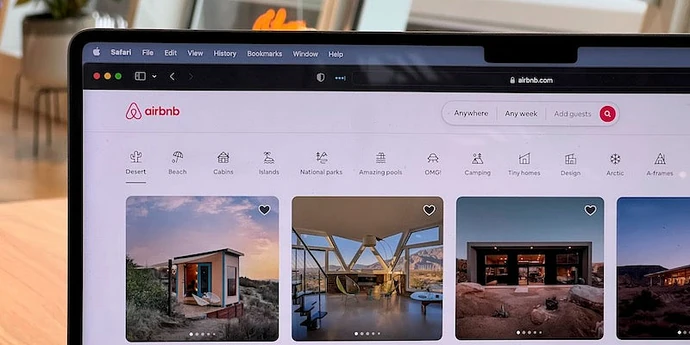Looking for the perfect answer to “why do you want to work at Google?” Below, we’ll give you four actionable steps that you can take to craft a high quality answer, today.
“Why Google?” is one of the most common Google interview questions across any role, so it is imperative that you come to the interviews ready to answer it. Typically asked at the start of an interview round, your answer will determine the interviewer’s first impression of you and set the stage for the interview as a whole.
Our first tip: do your research!
Let’s jump right into it.
- Learn why interviewers ask this question
- Study up on Google
- Write out your answer
- Practice your answer out loud
Click here to practice with ex-Google interviewers
1. Learn why interviewers ask this question
Working at big tech companies can be intense, especially at Silicon Valley powerhouses like Google. You’ll be addressing complex problems, working with the best of the best, and taking care of technology that serves billions of people.
Interviewers ask questions like “why Google?” to test whether you’ve got the motivation to last in this kind of fast-paced environment. If interviewers sense that a candidate does not have enough motivation, or is motivated for the wrong reasons (i.e. a paycheck), then they’re unlikely to hire them.
Interviewers also want to know whether you’ve done enough research and preparation ahead of time. Google is looking for employees who make their decisions based on data and logical analysis.
Showing up to the interview with well researched and thought-out reasons as to why you want to work at Google, specifically, helps show that you’re the kind of employee they’re looking for.
1.1 Tips for a great answer
Now that we’ve got a better idea of why interviewers ask this question in the first place, let’s get into the components of a great answer.
Tips to prepare your answer to “why Google?”
- Network: Make an effort to meet with or call one or more current Google employees. Ask them what it’s like working there, why they chose Google, and what is unique about it. This will give you good, specific talking points for your answer, and mentioning their names shows the interviewer that you’ve put in effort to get to know the company.
- Make it personal: If you have any examples from your personal experience that tie in with Google, now is a good time to bring them up: a Google product that shaped how you see the world, a Google app that allowed you to form a key relationship, etc.
- Make it specific: Your answer for “why Google?” should not apply to any other company. Try swapping out “Google” with other big tech names like Amazon and Meta. If the answer also works for the other companies, that’s a sign that you need to keep working.
- Give more than one reason: Aim for two to three concise reasons as to why you want to work for Google, as well as in your team and position specifically. Adding any more reasons risks making your answer too long, and only having one reason likely won’t be a strong enough answer.
- Talk about your team: Google is an enormous company, which means that some of the reasons why you might want to work for Google as a whole may not be specific enough. So, if possible, talk about the specific team and role that you’re applying for, and why that is a perfect fit for you as well.
- Keep it balanced: While you want to answer this question enthusiastically, overly praising Google or yourself will come off as disingenuous. Give real reasons as to why you want to work there, without offering empty compliments.
- Rehearse your answer: Once you’ve prepared your answer, record yourself saying it. Pay attention to your body language, and edit your answer if it goes too long. You should also get feedback from someone else before finalizing it.
1.2 Common pitfalls
Finally, before moving on to the next step, take some time to review common mistakes that candidates make when answering this question.
Common pitfalls in answering “why Google?”
- Answer is too broad: Simple answers such as “it would be a great opportunity to learn more,” “the people here are very smart and work hard,” or “the culture here is awesome,” won’t make the cut on their own (even if it’s true!). Interviewers have heard these responses many times before, so you’ll need to make it more personal and targeted.
- Answer is too long: This question is frequently asked at the beginning of a longer interview round or during the initial screening process. In both cases, it’s important to answer quickly and concisely, so that the interviewer can understand your answer and have time for other questions. Aim for a roughly 1-minute response.
- Answer lacks structure: Think of two or three reasons you’d like to work there, and describe each of them, one at a time. Otherwise, the interviewer will have difficulty following your train of thought, and you are more likely to ramble.
2. Study up on Google
Now that you’ve got an understanding of why interviewers ask this question, as well as a few tips on how to answer it well, let’s get started on crafting your answer.
The first thing you should do is learn about Google. As we mentioned in our tips, now is a good time to reach out to people from Google to get an idea of what the company is like.
In addition to the networking, do some research about Google’s culture and values. Here are a few general resources to get you started:
- Google's mission statement (by Google)
- Google's values (by Google)
- Google strategy teardown (by CBS Insights)
- Google's company blog (by Google)
You’ll also want to tailor your answer to the position that you’re applying to. If you’d like more information about top tech roles at Google, including practice questions and preparation tips, take a look at one of our interview guides:
- Google product manager
- Google associate product manager
- Google product marketing manager
- Google program manager
- Google technical program manager
- Google software engineer
- Google engineering manager
- Google data scientist
- Google (technical) account manager
- Google machine learning engineer
- Google data engineer
- Google site reliability engineer
- Google strategy and operations
- Google L4 engineer
Once you’ve got an idea of the company as a whole, you’ll need one or two more specific details about Google that you can use to customize your answer.
2.3 What sets Google apart
There are lots of similarities between big tech companies that can make it difficult to customize the “why this company?” question. So here are some unique facts about Google that you can use to make your answer as specific and as personal as possible.
What sets Google apart
- Google is extremely proud of its products—so much so that “what is your favorite Google product?” is one of its most frequently asked interview questions. So if there is a Google product in particular that has made a difference in your life, this is a good time to bring it up. Be specific about what features stand out to you, and what about it inspires you to want to work for the company that made it.
- Google makes it a priority to encourage innovation in their employees, something that is exemplified in their famous 20% policy (i.e.. employees are encouraged to spend 20% of their time on personal or creative projects). While this policy may not be completely in effect today, the spirit of innovation remains hugely important at Google.
- Google was voted the #6 best place to work in 2021, according to Glassdoor. This is the highest ranked FAANG company on the list, showing the care that Google takes to ensure employee growth and wellbeing.
- A huge part of Google’s company culture is the importance of dreaming big. The company as a whole frequently explores imaginative moonshot ideas that employees can get excited about. For example, they’ve backed X, previously Google X, which is an innovation lab that “aims to improve the lives of millions, even billions, of people.”
- Google has a reputation for engineering excellence, meaning that it highly values the craft of writing and maintaining good code. For software engineers in particular who are looking to hone their craft, Google is a great place to be.
- Google strives to maintain a friendly, communicative hierarchy. There is a relatively flat organizational structure within the company, and they hold monthly town hall meetings (the TGIF meeting, so named because it was previously held every Friday) to let employees ask questions and improve Google services. For candidates looking to work in an environment where their voice is heard, this is a good fact to mention.
Need help in your tech career?
Our career coaches can show you how to get to where you want to be, whether that's at Google or elsewhere. Book a product management career coaching session or a software engineering career coaching session and get clarity on your next steps.
3. Write out your answer
By this point, you should have a list of three distinct reasons that you would like to work for Google. It can include some of the facts we listed above, reasons from your personal experience, people you’ve networked with, or other facts you’ve found in your own research.
Now that you have the list, write out exactly how you plan on answering the question, “why Google?”
Once you’ve written your answer out, don’t forget to edit it as well. Make sure that you are stating the most relevant information, without too many extra details. The answer should take no more than one minute to say out loud.
To give you some inspiration, we’ve included an example below. Note that it is specific to Google, takes less than one minute to recite, and highlights the candidate’s skills without bragging.
Sample answer: Why do you want to work at Google?
“I want to work at Google for three reasons.
First, I'm excited to join Google because of its deep technical culture. I actually did a PhD in Computer Science before becoming a product manager, and I know that by joining the company I'll be working with colleagues who are as excited as I am about advanced technology.
Second, I'm attracted to Google because of its spirit of innovation, exemplified by the famous 20% policy—whether or not that policy is still a hard and fast rule at the company today. Being creative and pursuing novel opportunities is what inspired me to organize a PM committee and internal innovation events in my previous position, which ended up reducing turnover in my team by 15%. It sounds like Google is a place that encourages special projects like these.
Finally, I studied with Nancy Smith and Aaron Fox, who were part of the same PhD program and now work at Google. Both of them are enjoying their time here and encouraged me to apply to join the team.”
Watch more strong answers, for Google and other companies, in the mock video below:
4. Practice your answer out loud
This is the last step to prepare your answer to “why Google?”. At this point, you should have an answer written out and edited down to the most pertinent information.
Now it’s time to practice speaking through your answer, so that you’re able to recite it naturally, without missing any key details.
Here are two key steps to prepare for this:
4.1 Practice on your own
First, recite your answer out loud. Make sure to edit it down if it is longer than one minute.
Keep practicing until you are able to speak through your answer without referring to your written notes. You should be able to hit each of the main points without sounding too rehearsed.
Finally, once you’ve memorized your answer, record yourself speaking through it. Make note of your body language and places where you may be stumbling through important details.
By the end, you should be able to answer the question enthusiastically, showing your excitement to work for Google through the content of your answer as well as how you deliver it.
4.2 Practice with peers
Try out your answer in an interview setting by doing mock interviews. If you have friends or peers who can do mock interviews with you, that's an option worth trying. It’s free, but be warned, you may come up against the following problems:
- It’s hard to know if the feedback you get is accurate
- They’re unlikely to have insider knowledge of interviews at your target company
- On peer platforms, people often waste your time by not showing up
For those reasons, many candidates skip peer mock interviews and go straight to mock interviews with an expert.
4.3 Practice with experienced interviewers
In our experience, practicing real interviews with experts who can give you company-specific feedback makes a huge difference.
Find a Google interview coach so you can:
- Test yourself under real interview conditions
- Get accurate feedback from a real expert
- Build your confidence
- Get company-specific insights
- Learn how to tell the right stories, better.
- Save time by focusing your preparation
Landing a job at a big tech company often results in a $50,000 per year or more increase in total compensation. In our experience, three or four coaching sessions worth ~$500 make a significant difference in your ability to land the job. That’s an ROI of 100x!















